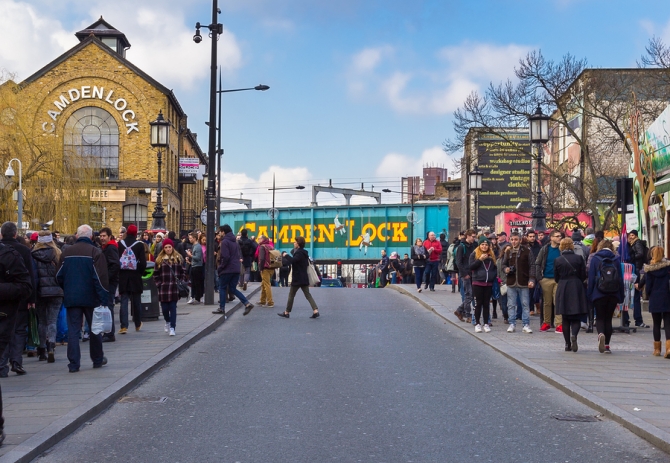A company owned by Israeli billionaire and gambling tycoon Teddy Sagi, Market Tech (MT), has paid almost £100m for two London assets — effectively giving it control of a strategic island of Camden properties.

Added to the ownership of another block on Jamestown Road, the purchase of The Interchange Building and Camden Wharf also gives Market Tech a physical link across all its assets and seriously strengthens its stranglehold on Camden and its ability to dictate future development.
Included in the latest deal is the freehold of the iconic Camden Lock Market, allowing the company to retain the percentage of annual income the 300-plus stallholders previously paid to the freeholder.
The 65,000 sq ft Grade II listed Interchange Building, for which MT paid £49m, is currently let to global media group Associated Press as offices. The sale also involved the transfer of the market freehold previously held by the Canal and River Trust, the re-named British Waterways Board.
The other building — Camden Wharf on Jamestown Road — was bought from the Tesco Pension Fund for an all-cash payment of around £50m. A 50,000 sq ft mixed-use property it contains Grade A offices in the upper floors and retail and leisure units at ground level, with tenants that include CBS Outdoor and Whitbread.
“These are highly strategic property acquisitions,” admitted Market Tech’s chief executive, Charles Butler, “that extend the footprint of our Camden Market estate and propel our vision to significantly enhance Camden’s built environment to create a world class living, working, retail and leisure destination under a single unified ownership.
“We are very excited by these acquisitions,” Butler said, adding that the assets straddle both banks of the Regents Canal “making them ideally suited for future enhancement”.
The Jamestown Road holding gives his company an almost complete island with facades on three sides and, together with the Interchange building, continues the billionaire’s campaign to control more and more of the borough’s landscape.
In March last Teddy Sagi bought Camden Stables Market, on Chalk Farm Road, for £400m. Seven months later he acquired Camden Lock Market for a figure reportedly between £70m and £90m. The entire 1.25 acre market complex — housing more than 300 traders in 50 stores, 20 galleries and five food halls — is made up of six themed sections of which the businessman controls at least half.
Born in Tel Aviv in 1972 Sagi built his fortune on the back of Playtech, a gaming software development venture he founded in 1999. The company provides software for online casinos, poker rooms, bingo games, sports betting, live dealer games and fixed-odds internet arcade games. It was floated early in 2006 on the London Stock Exchange at a price that valued the business at approximately £550m.
No related posts found for this post.